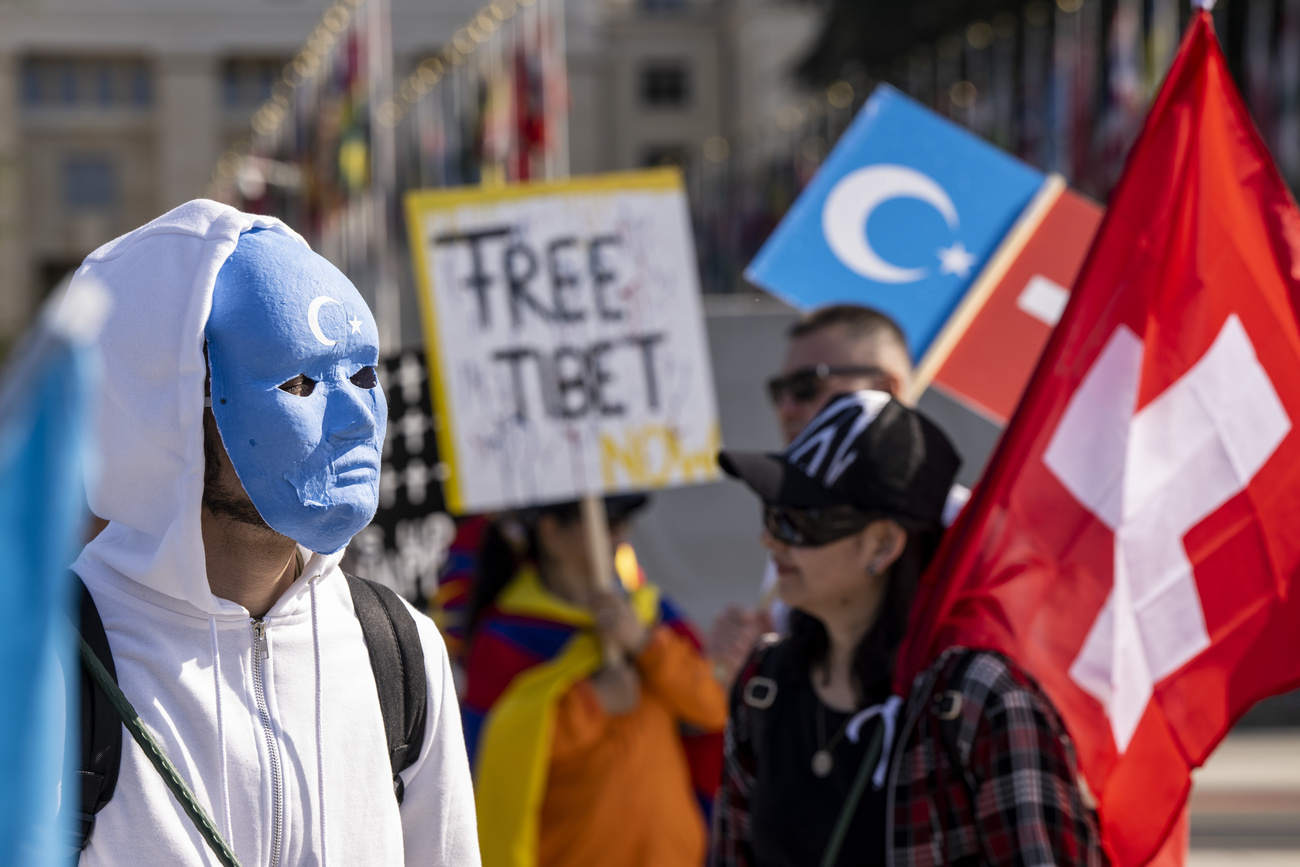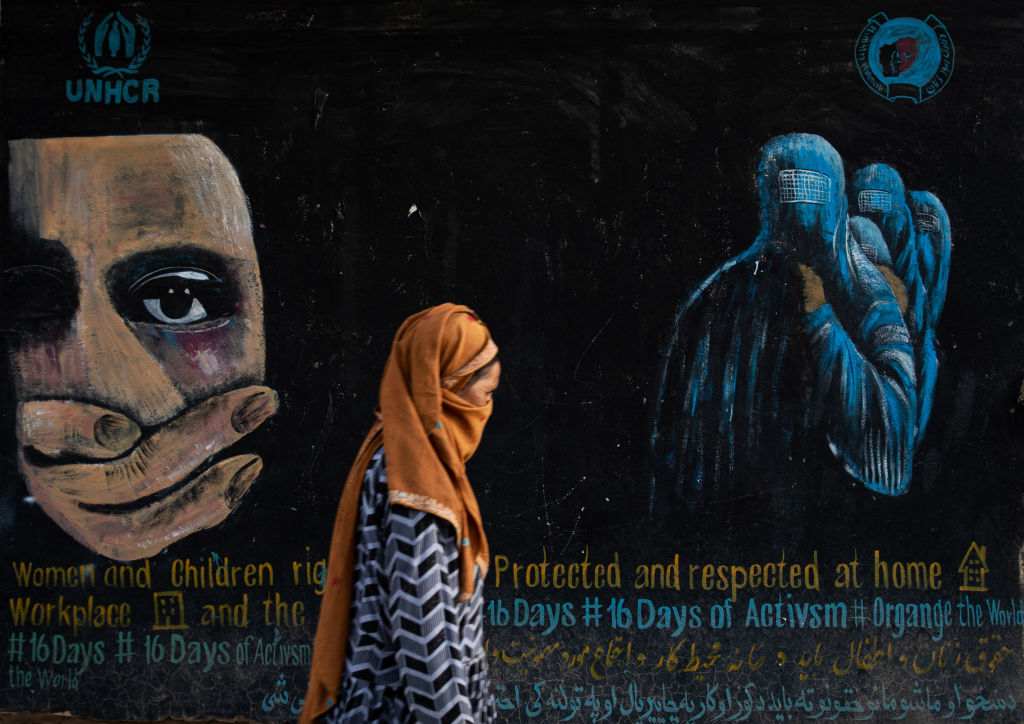
Human Rights Council vote on China reflects shift in power

Despite the efforts of Western countries and NGOs, the UN body responsible for protecting human rights everywhere refused to discuss the situation in China’s Xinjiang.
On October 6, the United Nations Human Rights Council in Geneva voted down a historic “draft decision” to hold a debate on the human rights situation in China’s Xinjiang province.
In its 16-year history, the Council had never targeted a permanent member of the UN Security Council. Ahead of the vote, the question on everyone’s lips was: can the UN’s top human rights body agree to hold a debate on alleged violations, which the UN has found may amount to “crimes against humanity”, by one of the world’s most powerful countries, China?
The result was close – 19 against, 17 in favour, and 11 abstentions – but it was a major diplomatic win for China.
China’s mission to the UN in Geneva tweeted that the result demonstrated the “firm opposition by the developing countries against political manipulations of Xinjiang-related issues by some Western countries”. Western delegations, which had proposed the text, said the vote showed that a significant number of governments were willing to stand up to China.
But some UN watchers wondered whether the Council, which has a mandate to promote and protect human rights across the world, and to address violations wherever they occur, had lost its moral standing.
>>> What does the Human Rights Council do? SWI took a closer look at how it came to be, and how it operates:
Blow to the Council’s credibility
“It’s impossible to see this as anything other than a blow to the credibility of the Human Rights Council and the United Nations,” says Marc Limon, the executive director of Universal Rights Group, a think-tank with offices in Geneva, New York, and Bogota.
Several members of the Organisation of Islamic Cooperation such as Indonesia, Qatar, and other Middle Eastern and African countries opposed the draft decision. Some of the world’s biggest democracies like India, Brazil, and Mexico abstained.
“Their credibility as constructive Council actors has really been undermined. Not just because they didn’t take a stance on China, but because these are governments that traditionally promote dialogue as the first solution to national crises or situations that they consider as controversial,” says Raphaël Viana David, China and Latin America advocate at the International Service for Human Rights (ISHR), an NGO with offices in Geneva and New York.
But the vote result is not a “mortal blow” to the Council’s reputation, argues Limon.
One day after the vote targeting China, the Council decided to mandate a special rapporteur on Russia, another historic decision against a powerful member of the Security Council. This result would have been “completely unthinkable” a couple of years ago, says Viana David.
Until last year, when it refused to renew the mandate of experts investigating alleged rights violations in the Yemen civil war, the Council had never voted down a resolution. The move shocked human rights defenders at the time. A year later, the Council has now rejected two proposals.
Shift in power
“There’s a clear shift in power at the Human Rights Council,” says Limon. He believes the change took place after the US left the Council under former president Donald Trump. “If you’re talking about one single dominant player now, it’s China. Closely followed by the United States, but it just doesn’t have the same lead that it used to,” he adds.
Historically, the UN human rights system has been dominated by the West, its democratic ideals, and its focus on civil and political rights. Until recently, Western countries were rarely the target of resolutions. But this has changed in recent years.
The Council responded in 2020 to the police killing of George Floyd by mandating the High Commissioner to produce a report on systemic racism and police violence against Africans and people of African descent that focused on the US. And in 2021 a China-led resolution on the “negative impact of the legacies of colonialism on human rights” targeting, without naming them, Western European states, Canada, and the US was also adopted.
This has left Western countries with no other option but to admit their faults, says Limon. “Either they just reject criticism outright, but then they would sound exactly like China or Russia. Or they say, ‘look, we recognise we have a problem, but we want to do something about it’.”
Ahead of the vote on October 6, US permanent representative to the Human Rights Council Michèle Taylor told the Council that “no country, no matter how powerful, should be excluded from Council discussions. This includes my country, the United States, and it includes the People’s Republic of China”.
According to Felix Kirchmeier, executive director of the Geneva Human Rights Platform, such statements by powerful governments will “make it ever more difficult for permanent members of the Security Council to fend off debates”.
Blow to the victims
But for victims and human rights defenders the result of the October 6 vote is hard to accept.
Many had hoped, that with the publication in August of outgoing UN High Commissioner for Human Rights Michelle Bachelet’s report on Xinjiang, the Council would finally be able to address the situation. The report contains evidence of serious human rights violations against Xinjiang’s Uyghur Muslims, including arbitrary and discriminatory detention, which the UN said could amount to “crimes against humanity”.
“Now that we have a report from the UN Human Rights Office, there must be some tangible action taken at the UN level on China. Impunity is not an answer for victims, for survivors, for the affected communities,” says Zumretay Arkin, program and advocacy manager at the World Uyghur Congress, an NGO based in Munich.
Despite their disappointment, rights groups will continue to advocate for accountability at the UN.
“We will remain in the UN space because it is still, despite all of it, a relevant space for us to work in and for multilateral action to be taken,” says Arkin.
New members
“The council is as good as its members, and its membership changes every year,” says Viana David. “Being two votes away in the context of the Council is not that much,” he adds.
Members of the Council are elected for three-year terms. On October 11, the UN General Assembly elected 12 new members. Seven of them, including Sudan, Bangladesh, and Vietnam are countries that have a record of reprisals against human rights defenders, according to a UN report. However, Venezuela, which UN-mandated experts have accused of serious rights violations, was not re-elected.
At the election, three of the five geographical regions presented as many candidates as there were seats available – a so-called “closed slate”.
“One of the only ways of improving the membership is having an election process that is competitive and that is transparent. And one of the preconditions is to have competitive slates, and that is up to the willingness of the different states in the regions,” says Viana David.
Reforms?
That China remains seemingly untouchable at the Human Rights Council may prompt questions about whether the Council should be reformed.
According to Limon, that is not necessarily needed. But the Council could spend more resources to assist “the big majority of UN member states that actually want to improve the human rights situation in their country but lack the capacity to do it”. He adds that “it is not to say public condemnation of States is not sometimes necessary, it is”, but the Council should also focus more on preventing human rights violations and crises at an early stage.
A certain level of polarisation is unavoidable in a multilateral body, given the current geopolitical context, points out Kirchmeier. “People forget that, in the end, it’s the same states sitting and taking decisions at the Council and in other organisations. It’s not a lofty moral authority. It’s a group of states, and it’s politics.”
Edited by Imogen Foulkes/vm

In compliance with the JTI standards
More: SWI swissinfo.ch certified by the Journalism Trust Initiative















![The four-metre-long painting "Sonntag der Bergbauern" [Sunday of the Mountain Farmers, 1923-24/26] had to be removed by a crane from the German Chancellery in Berlin for the exhibition in Bern.](https://www.swissinfo.ch/content/wp-content/uploads/sites/13/2025/12/01_Pressebild_KirchnerxKirchner.jpg?ver=a45b19f3)














You can find an overview of ongoing debates with our journalists here . Please join us!
If you want to start a conversation about a topic raised in this article or want to report factual errors, email us at english@swissinfo.ch.